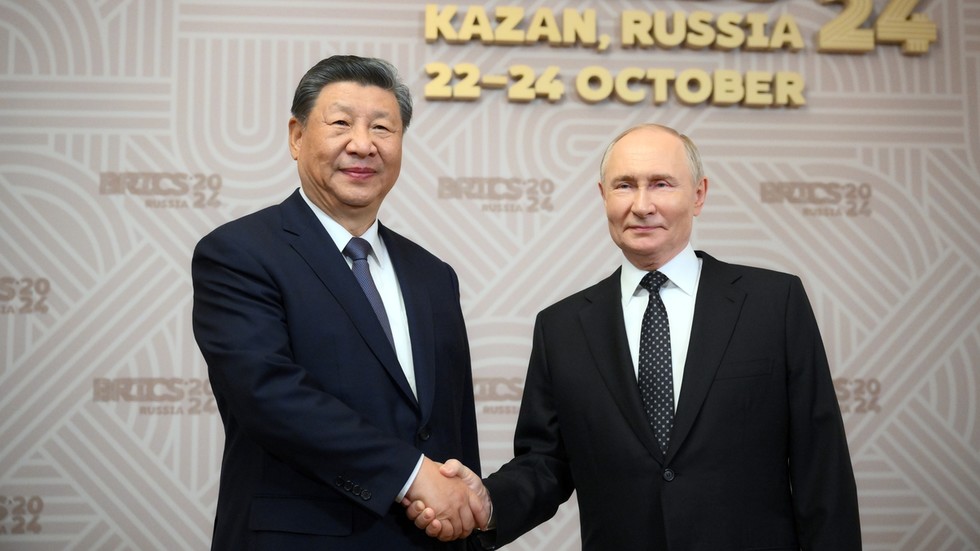Unbreakable Bonds: Lavrov’s Assurance of Russia’s Loyalty to China
In a world marked by shifting alliances and escalating tensions, Russian Foreign Minister Sergey Lavrov’s recent declaration underscores a pivotal geopolitical relationship. Lavrov’s assertion that the partnership between Russia and China is “unbreakable” signals a robust commitment to mutual support and cooperation. This statement comes at a time of heightened global scrutiny and uncertainty, particularly regarding the West’s diplomatic and economic strategies.
The Context of the Statement
Lavrov’s bold statement was made during a press conference aimed at reinforcing the deep-rooted ties that have developed between Moscow and Beijing over the past two decades. This relationship has grown stronger in response to what both nations perceive as increasing threats from Western powers, particularly the United States. As Lavrov emphasized, this partnership is not merely a temporary alliance but a strategic bond forged through shared interests and mutual respect.
Historical Foundations of Russia-China Relations
The relationship between Russia and China has evolved significantly since the early 1990s. Following the dissolution of the Soviet Union, both countries sought to redefine their roles on the global stage. The establishment of the Shanghai Cooperation Organization (SCO) in 2001 marked a pivotal moment in their collaboration, focusing on security, economic cooperation, and political dialogue.
- Strategic Partnerships: The two nations have engaged in numerous joint military exercises, economic collaborations, and cultural exchanges, solidifying their partnership.
- Economic Ties: Trade between Russia and China has skyrocketed, with China becoming Russia’s largest trading partner. This economic interdependence serves as a backbone for their alliance.
- Political Support: Both countries have often supported each other in international forums, standing against what they describe as Western hegemony.
Why the Assurance Matters Now
As geopolitical tensions rise, particularly concerning U.S.-China relations and the ongoing conflict in Ukraine, Lavrov’s assurance of loyalty takes on added significance. The West has increasingly viewed both nations with suspicion, often framing them as threats to global stability. In this context, Lavrov’s statements can be seen as a strategic message to the West, emphasizing that any attempts to isolate Russia will only strengthen its ties with China.
Implications for Global Politics
The assurance of an unbreakable bond between Russia and China could have far-reaching implications for international relations. Here are several key areas to consider:
- Geopolitical Alignments: As the U.S. seeks to rally its allies against perceived threats, the Russia-China partnership may create a counterbalance, complicating the global geopolitical landscape.
- Economic Collaboration: The two nations are likely to continue enhancing their economic ties, potentially challenging Western economic dominance. This may involve increased trade agreements and joint ventures across various sectors.
- Military Cooperation: Enhanced military cooperation could lead to a more formidable defense posture against Western interventions, as both nations continue to conduct joint military exercises and share defense technologies.
The Rise of a Multipolar World
Lavrov’s statement also reflects a broader trend towards a multipolar world, where power is distributed among multiple nations rather than dominated by a single superpower. The collaboration between Russia and China exemplifies this shift, as both countries seek to assert their influence in a world that is increasingly skeptical of Western policies.
Challenges Ahead
Despite the strong rhetoric, the Russia-China partnership is not without its challenges. Both nations have distinct national interests that may sometimes conflict. For instance, while they can unite against common adversaries, issues such as territorial disputes and economic competition could strain their relationship in the long run.
- Resource Competition: As both countries compete for energy resources and markets, tensions may arise over access and control.
- Political Differences: Differences in governance and political ideologies could lead to friction, especially as both countries navigate their domestic challenges.
Looking Forward: The Future of Russia-China Relations
The future of the Russia-China relationship will undoubtedly be influenced by global events, domestic politics, and economic developments. However, Lavrov’s assurance of loyalty indicates a commitment to navigating these challenges together. Given the current state of international relations, the partnership is likely to endure and evolve, adapting to the changing geopolitical landscape.
Conclusion
Sergey Lavrov’s declaration of an “unbreakable” partnership between Russia and China is a potent reminder of the shifting dynamics in global politics. As both nations position themselves against Western influence, their alliance serves as a focal point for understanding future geopolitical trends. The implications of this partnership extend beyond bilateral relations, potentially reshaping the global order in profound ways.
In conclusion, as we witness these developments, it becomes increasingly important to observe how this unbreakable bond will influence international relations, economic policies, and military strategies in the years to come. The Russia-China partnership stands as a testament to the complexities of modern diplomacy, where alliances are formed not merely out of friendship but out of shared strategic interests in an ever-evolving world.
See more BBC Express News

